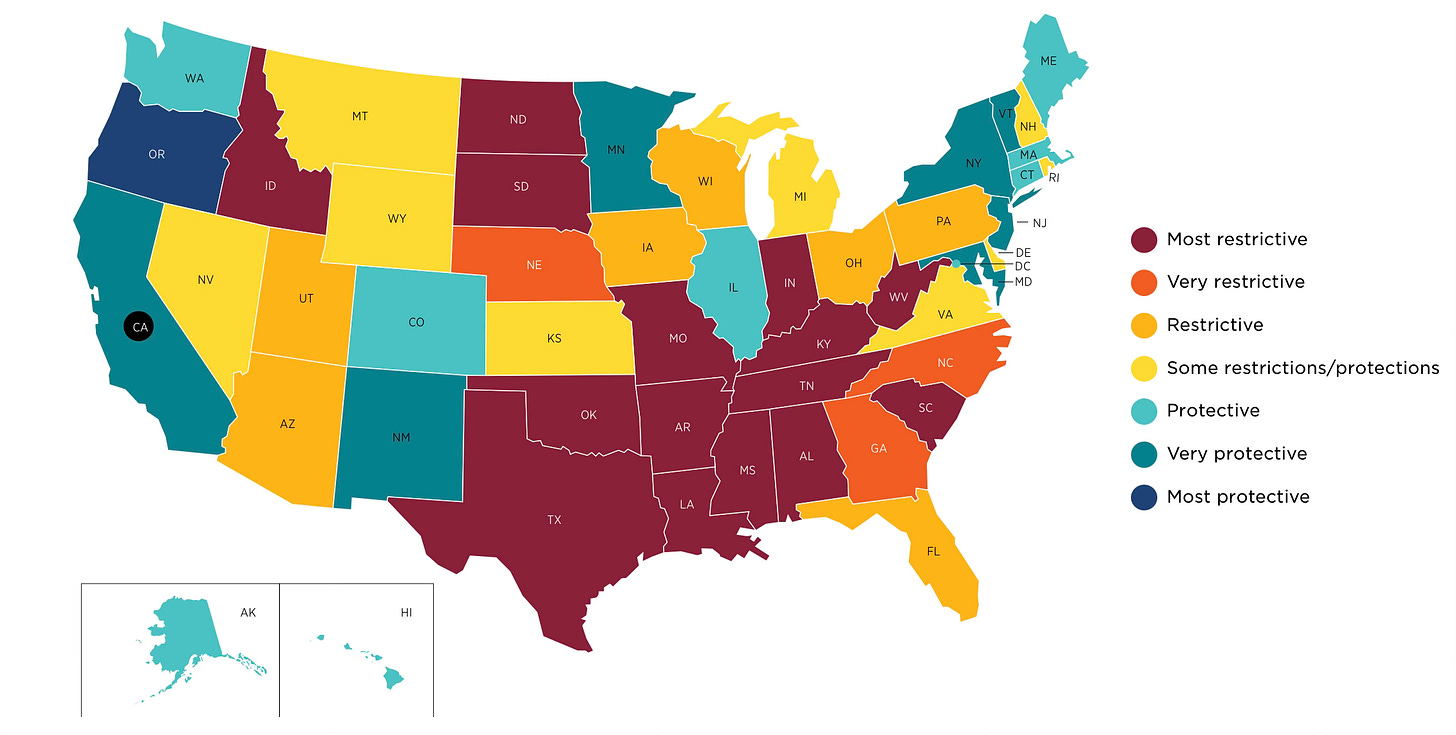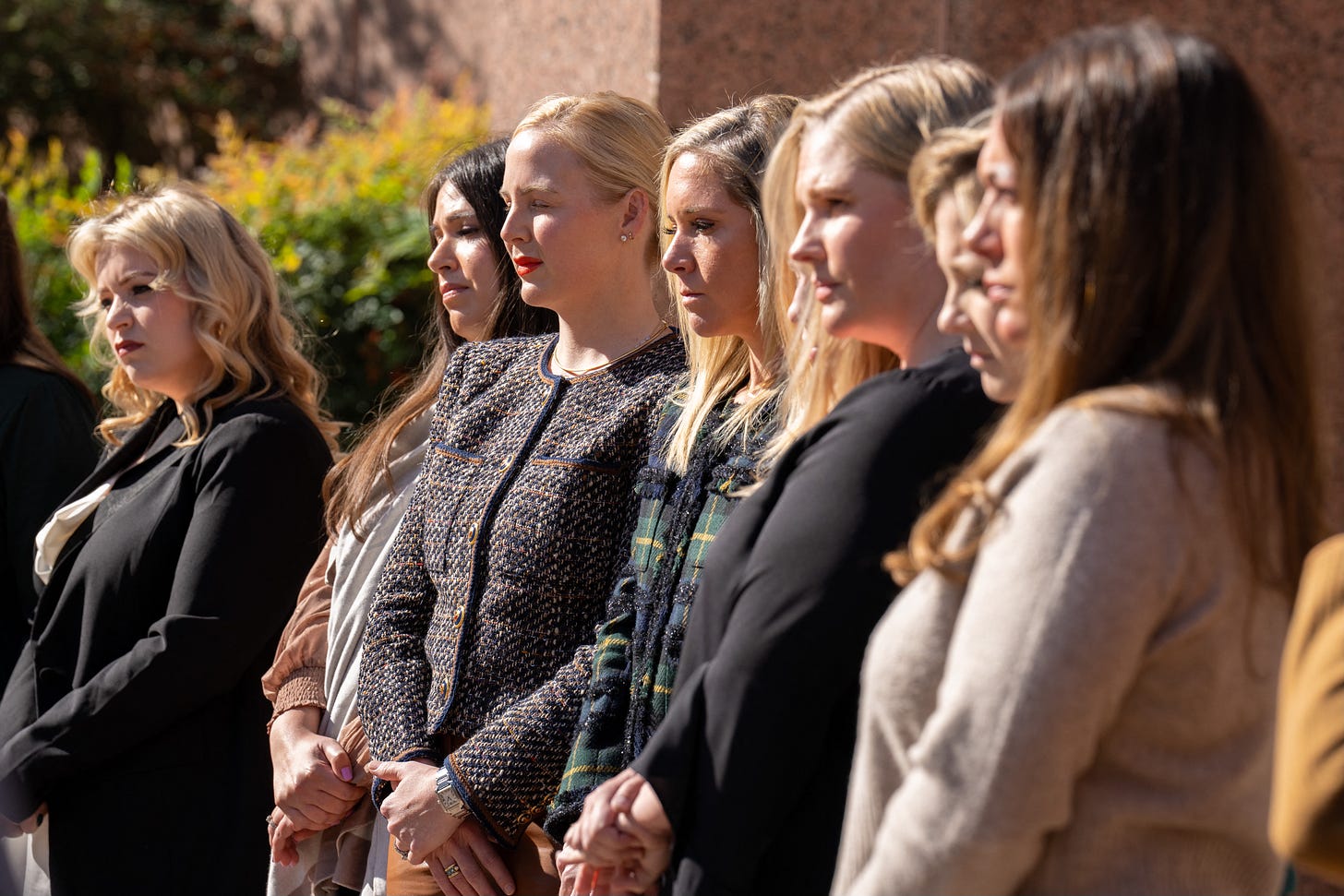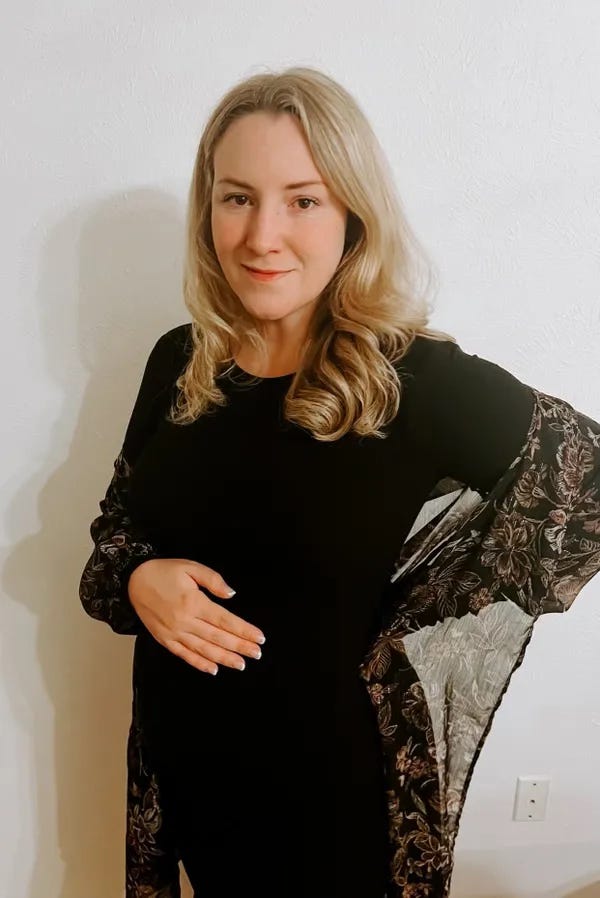"Kate Cox Needs an Abortion, and She Needs it Now."
The above is a direct quote from the lawyers representing a woman in a lawsuit filed on Tuesday, who sought a court approved abortion to protect herself and her doctors from criminal repercussions.

A woman in Texas was forced to seek a court-approved abortion this week following the US Supreme Court’s effective reversal of Roe v. Wade last summer, which allowed states to enact their own abortion restrictions. A Texas judge granted her request on Thursday, and issued a temporary restraining order to permit her doctor to perform an abortion without facing civil or criminal penalties, finding that the because the fetus had been diagnosed with a fatal condition, an exception was present.
Kate Cox — who is 20 weeks pregnant and a mother of two — was diagnosed with fetal Trisomy 18, a genetic condition that in all but very rare cases leads to miscarriage or stillbirth, or to the infant’s death within the first year. More than 95% of fetuses with Trisomy 18, also known as Edwards Syndrome, do not survive to birth, or if they do, are likely to die within minutes or hours.
Cox’s lawyers said she had visited the emergency room four times due to pain and complications, including once after her suit was filed in district court on Tuesday. Each time she sought emergency medical treatment, doctors explained to her that she was forced to continue the pregnancy because an abortion carried criminal penalties. Under Texas law, once a fetal heartbeat can be detected, a physician is prohibited from performing an abortion.
Judge Maya Guerra Gamble of Travis County District Court, agreed with Ms. Cox’s lawyers that the medical procedure was necessary to protect Ms. Cox from a potentially dangerous birth, and to preserve her options for conception in the future. “The idea that Ms. Cox wants desperately to be pregnant, and this law might actually cause her to lose that ability, is shocking, and would be a genuine miscarriage of justice,” the judge said, making a point to emphasize the irony. “So I will be signing the order, and it will be processed and sent out today.”
The state cannot appeal a temporary restraining order and would instead have to file a writ of mandamus to petition a higher court to block the order. Cox obtaining the abortion procedure before a writ is filed would render the case moot. Texas Attorney General Ken Paxton, who only recently escaped criminal fraud charges, has not yet announced if he will file a writ of mandamus petition to contest the ruling, but he has issued an illegal threat on social media to any hospital, doctor or individual who allows an “abortion to proceed.”

State’s Attorney Johnathan Stone argued during Thursday’s hearing that state laws are clear and that Dr. Ingrid Skop, an anti-abortion OB-GYN, reviewed the facts as outlined in Cox's petition and did not find evidence that Cox's situation qualifies her for a medical exception. Stone also claimed that granting Cox permission to terminate her pregnancy would change the law's meaning.
"If you sign the TRO order as written, you will be effectively saying that the standard in Texas is not reasonable medical judgment," Stone said in the hearing. "Instead, it's a subjective standard, and it's simply a good faith belief. You'd both be changing the standard for the medical exemption in Texas, and then finding that the plaintiffs ... qualify for that.” This latest ruling by Judge Guerra Gamble has effectively done what anti-abortionists have argued against — establishing that the Texas law has not used “reasonable medical judgement” with regard to Ms. Cox.

This case is one of the first attempts by a plaintiff to seek a court-approved abortion while still pregnant, following the Dobbs v. Jackson Women’s Health ruling, which reversed established abortion rights all over the country. Since 2022, more than a dozen conservative states have enacted abortion bans or severe restrictions on access to an abortion procedure.
Texas is one of 13 states that bans abortion at nearly all stages of pregnancy. There are currently 24 states that have already banned abortion or are likely to enact some kind of ban. While Texas does allow for some very limited exceptions, the law is so restrictive and vague that doctors and women have had to pursue clarifications from the court, for fear of facing criminal charges just for providing and obtaining necessary medical services.

To call Kate Cox lucky in this instance hardly seems fitting, but given what could have happened to her, it does not seem unreasonable. What if Kate had gotten another judge, with an anti-abortion agenda? What if Kate did not have the means to pursue this legal strategy in such a quick amount of time? What if Kate had been forced to endure another four months of excruciating pain that resulted in the torment of watching her baby be born dead, or die a painful death right after birth?
Unfortunately, those questions are at the heart of Zurawski v. Texas, another lawsuit that will determine how medical exceptions to Texas' abortion ban can be interpreted and applied in cases of pregnancy complications. This case is the result of 20 Texas women, many of them experiencing pregnancy complications like Kate Cox, who were denied abortions.

That suit, filed in March, alleges that vague language and “non-medical terminology” in state laws leave doctors unable or unwilling to administer abortion care, forcing patients to seek treatment out of state, or to wait until after their lives are in imminent danger. On Nov. 28 of this year, exactly one week before Cox filed her lawsuit in district court, the Texas Supreme Court heard arguments for the case in Zurawski v. Texas. The Unite States Supreme Court, which overturned a woman’s fundamental right to an abortion, is expected to issue a ruling in June.
UPDATE: On Monday, December 11, 2023, the Texas Supreme Court overturned the lower court ruling allowing an abortion for Kate Cox, finding that she was not entitled to a medical exception. Cox, who is more than 20 weeks pregnant and whose condition has been rapidly deteriorating, had decided just hours before the injunction to leave Texas for the procedure in the face of the state’s abortion ban and the impending ruling.
Amee Vanderpool writes and publishes the SHERO Newsletter, is an attorney, author, contributor to newspapers and magazines, and an analyst for BBC radio. She can be reached at avanderpool@gmail.com or follow her on Twitter @girlsreallyrule.
Paid subscriptions and one-time tributes embedded in each article allow me to keep publishing critical and informative work that is sometimes made available to the public — thank you. If you like this piece and want to support independent journalism further, you can forward this article to others, get a paid subscription or gift subscription, or donate as much as you like today.





I like your post - but I hate what it's about. I want to spit nails.
This horrific case goes to show how utterly cruel, vindictive and malicious Ken Paxton is.